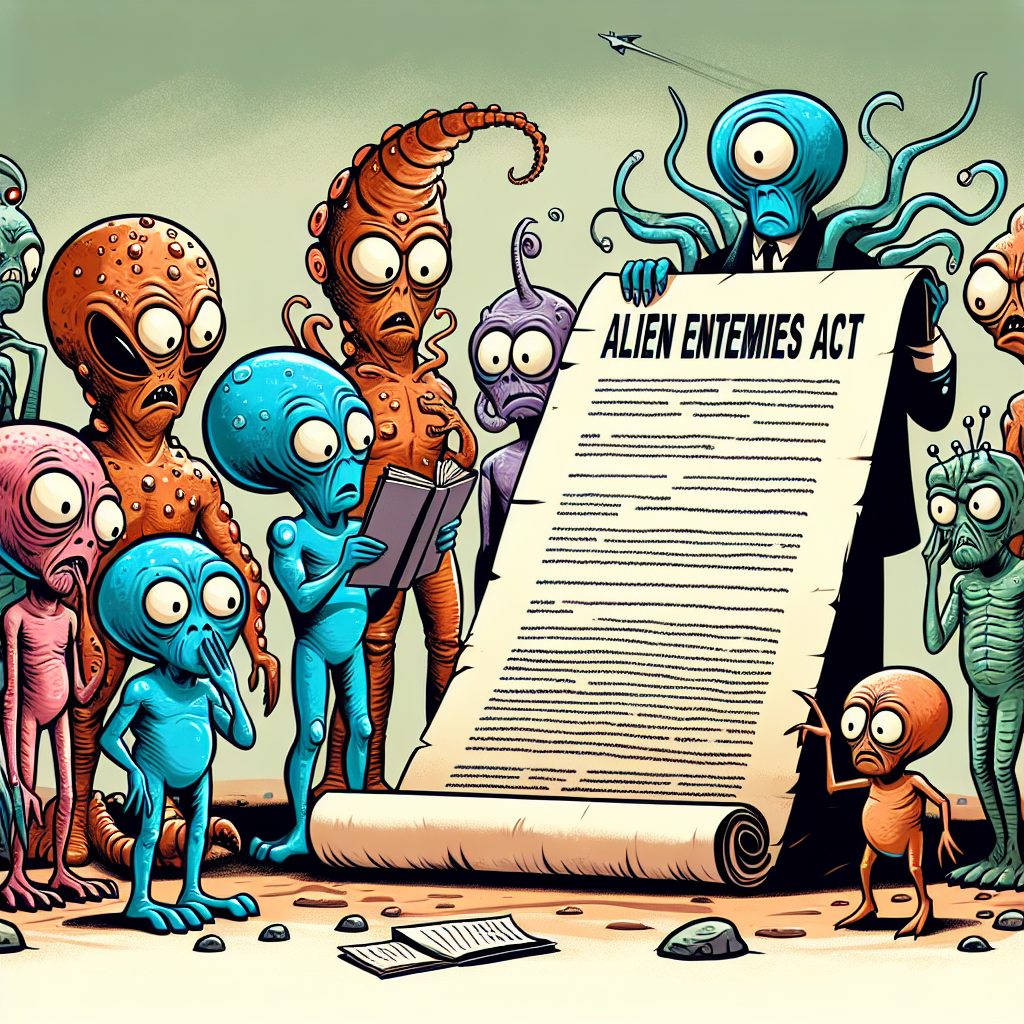Trump's Alien Enemies Act Proclamation Sparks Controversy
U.S. President Donald Trump invoked the Alien Enemies Act to deport individuals posing national security risks, citing Venezuelan gang activities. Historically used to handle foreign threats, the act has drawn criticism for civil rights violations. Courts have debated the definition of 'invasion' in relation to the act.

U.S. President Donald Trump has reignited controversy by invoking the Alien Enemies Act, an age-old piece of legislation aimed at countering foreign threats. This move is part of his promise to address illegal immigration on a large scale.
Originally enacted in 1798 to combat espionage during heightened tensions with France, the act enables the president to deport or detain individuals who may pose a national security risk during wartime. Trump's invocation stems from alleged hostile actions by the Venezuelan gang, Tren de Aragua, declared a terrorist organization by the U.S. government.
Historically, the act has been employed during significant conflicts, including both World Wars, and has faced legal scrutiny for its constitutionality. Some lawmakers argue that it infringes on civil rights and have pushed for its repeal. The broader debate continues over what constitutes an 'invasion' as interpretations vary.
(With inputs from agencies.)
ALSO READ
Pakistan's Retaliatory Strike: Targeting Terrorism Across Borders
Caught in Limbo: The Heartbreaking Story of a Christian Adoptee's Fight Against Deportation
Property Seizure Sends Strong Message Against Terrorism
DefSat 2026: Space Technology at the Heart of National Security
India and Brazil agree that terrorism, its supporters enemies of all humanity: PM Narendra Modi after talks with Brazilian president.










